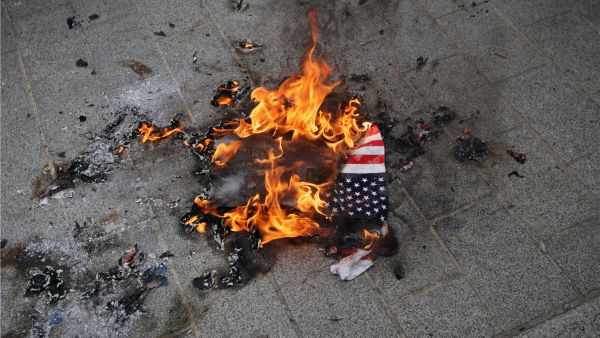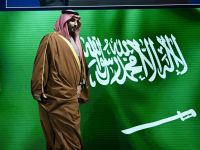Euphoria spread through the nation like a raging brushfire on news Sunday night and into Monday that US special forces had finally tracked down and killed Osama Bin Laden, architect of the most heinous attack ever on the United States.
Spontaneous crowds sprang up along the sturdy wrought iron fence in front of the White House in Washington from which President Obama had made the announcement and at Ground Zero in New York, the site of two grand office towers known as the World Trade Center which were destroyed in an attack by Bin Laden’s agents of doom in 2001.
The crowds swelled throughout the wee hours of the morning with people waving American flags, singing patriotic songs and imploring God to bless America. Never mind that the threat of terrorism remained an ever present danger; the boastful architect of the attacks that claimed the lives of 2,974 men, women and children in the twin towers in New York, and hundreds more in an attack on the Pentagon and a thwarted attack aimed at the White House finally had been brought to justice.
These were bittersweet moments: The families and loved ones of those killed in the attacks and in courageous efforts by first responders now had a measure of closure. The man most reviled and sought by Americans was dead.
It was a badly needed salve for the nation that could not have come at a better time. America has been saddled with a sagging economy that has greatly eroded the quality of life here over the last several years and still is coping with fresh memories of the army of tornadoes that swept through the southern region just last week, killing nearly 400 people and leaving thousands homeless in a swath of destruction that spanned four states.
Tears streamed down the faces of some people interviewed by television news reporters as the ever growing crowds vented years of pent up emotions—happiness and sadness. Over and over, people recounted how their lives were turned upside down and changed forever on seeing benign airplanes that normally dotted the sky like graceful big birds turned into weapons and crashed into buildings; people desperately jumping to their deaths from the smoldering twin Trade Center Towers before the towers collapsed in a horrifying roar, snuffing out the lives of thousands in seconds and sending huge walls of acrid black smoke billowing through the narrow city streets; the sheer horror of watching terror-stricken people and the walking wounded flee for their lives.
By daybreak, crowds had gathered in other cities across the US as well, putting aside normal differences and issues with each other to cheerfully reaffirm a nation united. Cars drove through the streets of some cities brandishing American flags and their horns blowing, the way some Latino groups here do with their national flags on winning soccer matches.
The nation had hit the lottery, won the grand pix, the Super Bowl and World Series all at once. A formidable enemy was no more. It was as if Satan himself had been killed, leaving his band of demons in disarray.
As the euphoria of this defining moment in US history eventually wanes, the nation will have to begin a reassessment. Does the death of public enemy number one and the end of the manhunt that cost more than $400 billion and thousands of military and civilian lives also mean US troops can be brought home from the Middle East on a speedier timetable?
Has Al-Qaeda been rendered a toothless tiger given that by many accounts operational leadership already had passed from Bin Laden to others in the terrorist organization that have been unable to mount a single successful attack against the US since 2001? Or is this just a moment to breathe, will Al-Qaeda try to make Bin Laden a martyr to attract new recruits and redouble its efforts to strike at the US?
Will Bin Laden’s death bolster the resolve of reformists throughout the Middle East as they seek to overthrow the despots that have ruled them for decades? What, exactly, should be the US role in it all?
Perhaps most importantly, has a space now been created in which radical Islamists can be marginalized so that the rift between Christian Americans and Muslims can be mended?
The answers will emerge in time. For now, it is as if a war has been won, a Berlin Wall torn down—celebration is the order of the day.
By Nathaniel Sheppard, Jr








